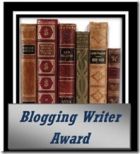As The World Falls Down
The title of this post Not just a fond memory of David Bowie as the Goblin King in Labyrinth – though if you want a trip down memory lane you can watch the Goblin King himself in action and you may never eat peaches again. Though I do want to know how he did that thing with the glass balls. I know I tried this as a kid (with tennis balls) with zero success, than again, I can’t juggle either.
The title of the post is actually referring to character creation and how it is easy for characters to be strong and amazing when things are going well but would they actually cope with the situations they get thrown into.
If you read an older style action novel then the hero, stepping from mundane life to saving the world, will simply shrug off any number of attacks and set backs and continue to plow forward with reckless abandon, possibly having one touching loss of confidence scene. These characters don’t come off as realistic though they work because these stories are simply about the action and that’s all they ever claimed to be.
Far more realistic is the character that ends up catatonic after their world gets torn apart around them but that isn’t particularly interesting either and can kind of leave your story high and dry if your protagonist goes on a mental holiday for half the book.
So what does your character do as their world falls down?
Are they helping it along? Do they follow Sarah’s example (back to Labyrinth) here and smash the walls apart and give no heed to the possible consequence because it is worse to stay where you are? Do they run and hide and need someone or something to help them find their way again? Do they take advantage of the wreckage?
How does your character deal with the world falling down?
100+ Reading Challenge
Just an update on how I am going . I started the year so well. In January I read 8 books. That was great. Since then I’ve read 11. 19 books. A little off my target of 40 by the end of April. Admittedly, I’ve been really distracted this year so far and things are only just settling down. But at least I’m reading again, and for the most part I’m reading books I’ve never read.
Okay, I reread 100 Years of Solitude but I hadn’t read it in nearly three years so it was kind of like reading it for the first time.
I did, however find a delightful YA novel by Scott Westerfeld called “Specials”. It is the third book in a series but there is enough backstory interspersed throughout to fill you in and it isn’t done in an info dump that just annoys people who have actually read the previous two books so that doesn’t really bother it.
I really enjoyed reading it and it reminded me how much fun reading could be. There is depth to the story if you want to look at the bigger issues but you can also just glance over them and enjoy the story. At times you may want to ditch Tally, the protagonist, in favour of one of the more interesting characters but for the most part the story works well at keeping you drawn in.
I may not succeed at the 100+ target but I am enjoying the journey. Hope everyone else who took on this challenge is enjoying it as well.
By the way, I’ve had First Among Sequels by Jasper Fforde sitting on my desk for nearly two days and I still don’t know whether I want to read it or not. Has anyone read it before?
Building Better Worlds
Yes – the title of the post is a quote from Aliens about the terraforming process used to create a new world to live on.
I mentioned last week that I would be talking about world building in a bit of detail so here goes.
One of the prerequisites when writing high fantasy is that there is a totally different world and usually that world is completely separate from the ‘real’ world (though because we live in the real world and are writing for a real world audience it kind of helps to give enough similarities that people can understand what they are reading).
There are many different approached to world building and everyone does it their own way. Some people start with a clear vision of what the world looks like and draw it and then break it down into its individual pieces, other people start with a theme (such as medieval) and build the world out from there. One person I spoke to once mentioned that the world in their story came from a dress she really wanted to wear and she built a world around her ideal fashion. The point is, you start wherever you are comfortable starting. If you are like me, you tend to start with a character and then build the world around where that character may have come from.
A couple of points about worlds. There needs to be logic to them. If nothing else there should be geographic logic. Yes, you can sometimes get away with magical landscapes and where things float in midair and the like but you need to consistently apply whatever rules and logic you’ve decided on and you need to make sure you somehow make it acceptable to the reader. Otherwise they aren’t going to believe your world and if you are writing high fantasy your reader has to believe in the world you’ve created – at least for the duration of their reading. Also, draw a map, even if it is only a rough sketch on a napkin while drinking coffee. You don’t want to be heading east to the river one minute and then end up in the desert. It doesn’t matter whether that map ends up in the book or not but you need it so that you can check for continuity errors in your story.
Other than the geography there are three things I like to think about when planning worlds. Politics, religion and economics. Whenever you study a society, whether it be a modern day society or an ancient civilisation, these three things are always prominent in your learning. What political structure existed? What religion or religions were practiced? How prolific were they? How influential were they? Did they trade? Were they self sufficient? Was there currency or did they barter? How do all of these things affect day to day living?
My theory is that once I have the geography roughly mapped out, the political structure decided, religious beliefs created and a working economic system (or multiple ones if I am dealing with more than one part of the world), I have a more or less workable and believable foundation for a world once I fill in the finer details. Those finer details would be things like fashion, food, architecture, occupations, modes of transportation, weaponry, etc, etc, etc. You know, minor details that can cripple the entire story on the spot.
So – what do you think about when building your world? When reading what can make or break a world? I would love to know how other people approach this.
Live in the World
I don’t often focus on setting but I recently read a post from J.C. Hart on Creating Depth in Fiction where she discusses the idea of world building and its importance to the story. As a fantasy writer I know that setting is really important to the stories success and world building takes an enormous amount of time and energy and given I don’t write epic tales and describe every blade of grass in the field most of my planning for my worlds never actually appears in the story. That doesn’t make the planning any less important or necessary.
Stories have three main parts – plot, setting and characters. All three are completely vital and while some authors argue for plot driven stories and others go for character driven stories, I have only ever read one article about setting driven stories and I do not remember the how or the why it worked. That doesn’t mean that setting is not equally important and that you can get away with doing minimal work on it.
In fantasy particularly, setting can nearly be seen as its own character. It is something totally new and different that the reader has never encountered and you need to introduce your reader to it and then get them to feel some kind of connection to it. They also have to believe in it which means that it has to be consistent within the rules you establish for it, much like your characters. People will accept floating islands in the sky as long as you give them a reason to believe it and then don’t directly contradict yourself later in the story. The question is, do you really need the floating islands?
If you were to ask people what their favourite fantasy world was a large number would say Middle Earth. Why? Because a large number of people have read Lord of the Rings, which always helps, and because Tolkien laboriously breaks down each and every setting and describes in vivid detail. That actually explains my dislike for the books, too many details that simply slow down the pace of the story. But it does create a really believable and realistic world. Even before the movies you could close your eyes and imagine the world and see it clearly and you knew that it would work.
Personally I would list David Eddings’ Eosia from the Elenium trilogy as my favourite fantasy world. Admittedly, the resemblance between these ‘western’ kingdoms and Europe in both dress and demeanor is at times overdone but the world makes logical sense and there are enough variations to keep it interesting.
Interestingly enough both Tolkien and Eddings focus on the quest and so end up wandering all over their respective worlds and so it is really necessary for them to make sure all the little towns and kingdoms line up and match together in order to create one believable world.
Final thoughts on setting:
- Places have history but that history does not need to be dumped on the reader in one go (particularly in a prologue that goes for multiple pages)
- The setting will influence the characters in dress and food and demeanor and it is necessary that the two work together logically
- The setting needs to be brought to life for the reader but does not need to be explained at the expense of the story.
Share your thoughts on setting – if you read fantasy, let me know what your favourite fantasy world is.



